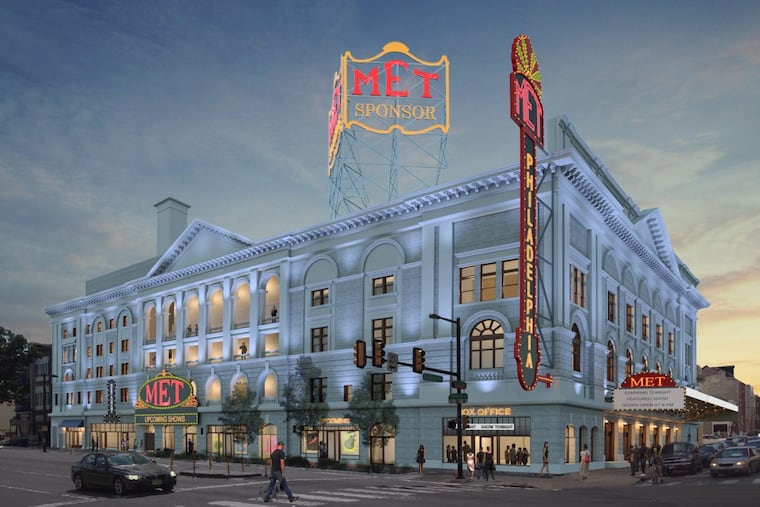Renovation of Philly's Metropolitan Opera House moves forward, thanks to $56M in loans
After receiving a $56 million loan package from private and public lenders, developer Eric Blumenfeld said he is ready to finish the final two-thirds of construction on the historic North Broad Street project.

Developer Eric Blumenfeld is one step closer to finishing the redevelopment of Philadelphia's Metropolitan Opera House, having closed this week a $56 million financing package from public and private lenders.
The package — comprising loans from the Philadelphia Industrial Development Corp. (PIDC), Fulton Bank, New Jersey-based lender Billy Procida, and New Orleans-based Enhanced Capital — will be used to complete the remaining construction on the Oscar Hammerstein's 1908 opera house, Blumenfeld said. So far, Blumenfeld said in an interview, the project is "one-third done," with the interior demolition phase already finished.
Blumenfeld, in partnership with the Church of the Holy Ghost, purchased the property — at 858 N. Broad St. — in 2013, after the church's Rev. Mark Hatcher had saved it from demolition years before. Last year, it was announced that concert promoter Live Nation would lease the building and turn it into a concert venue.
Blumenfeld expects that the renovated opera house will open in December. Once the redeveloped building reopens, the Church of the Holy Ghost also will use the space for Sunday church services.
"My prediction is that the North Broad Street Corridor will just get better on Dec. 13 of this year when we open … and continue to attract the best and the brightest from all sectors of the economy," Blumenfeld said in a statement. "It is a great place to live and work, and as time goes on, it will become a major destination."
Beyond the loan package that Blumenfeld has received, he is awaiting to hear whether he will receive a grant from the Redevelopment Assistance Capital Program (RACP), a state program from which he requested $5 million for the opera house project.
Not far away along North Broad Street, Blumenfeld has been finishing construction of the historic Divine Lorraine building. The prominent, 11-story tower, which also had fallen into disrepair, has been redeveloped by Blumenfeld for $33 million throughout the last few years, and held its grand opening in September. After opening its doors to residents nearly a year ago, Blumenfeld said Friday that about 75 percent of residential units in the building have been leased. Three commercial leases have been signed so far, he said. He is working on securing additional commercial tenants.
Both the Divine Lorraine and the Metropolitan Opera House projects have the potential to increase the prominence of the North Broad Street corridor, which has not seen nearly the same investment as has South Broad Street within the last decade.
"The Met in Philadelphia is still a new thing for most people," Geoff Gordon, Philadelphia regional president for Live Nation, said in a statement. "I think a lot of people have a misconception when they hear 'The Met' — that it's in New York — well, Philly has one, too, and ours has been a part of the Philadelphia culture for many years."
"The reincarnated Metropolitan Opera House is about to become one of the great venues in the world," Gordon continued.